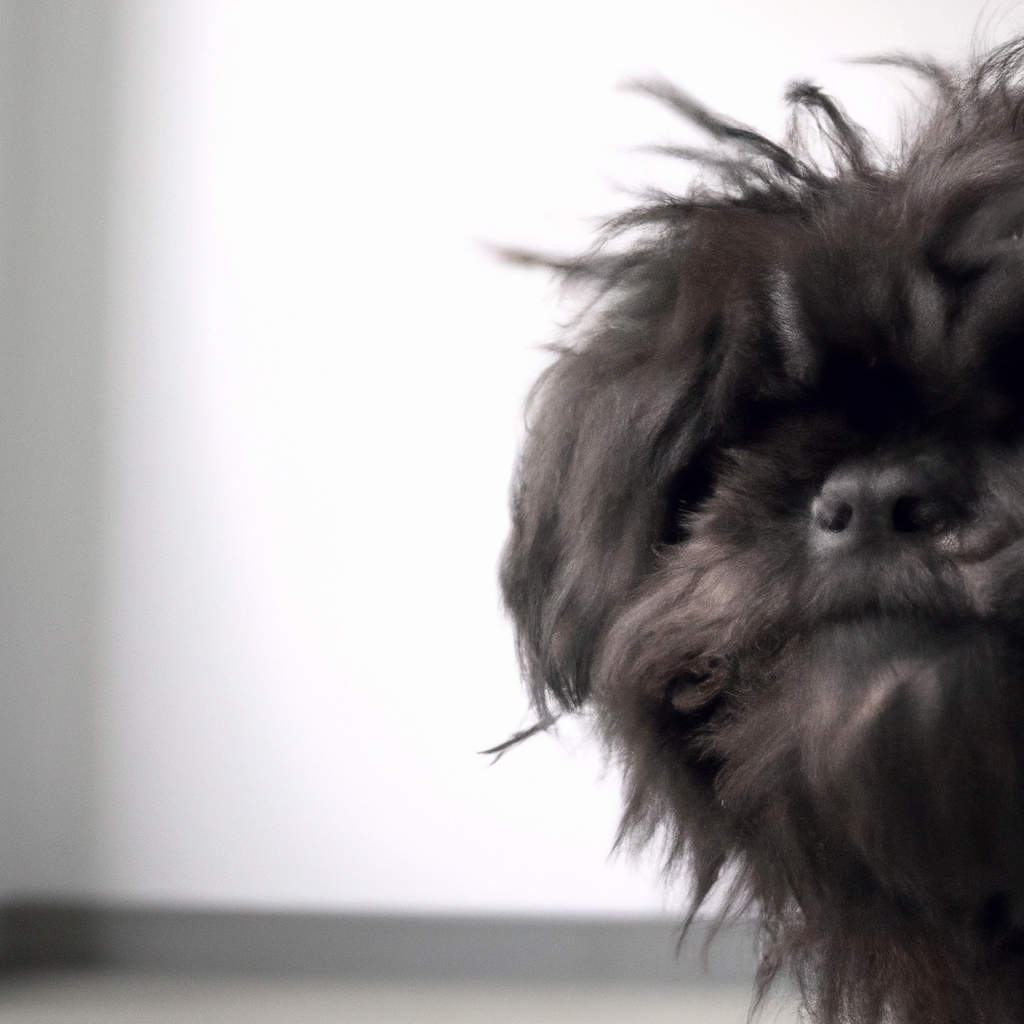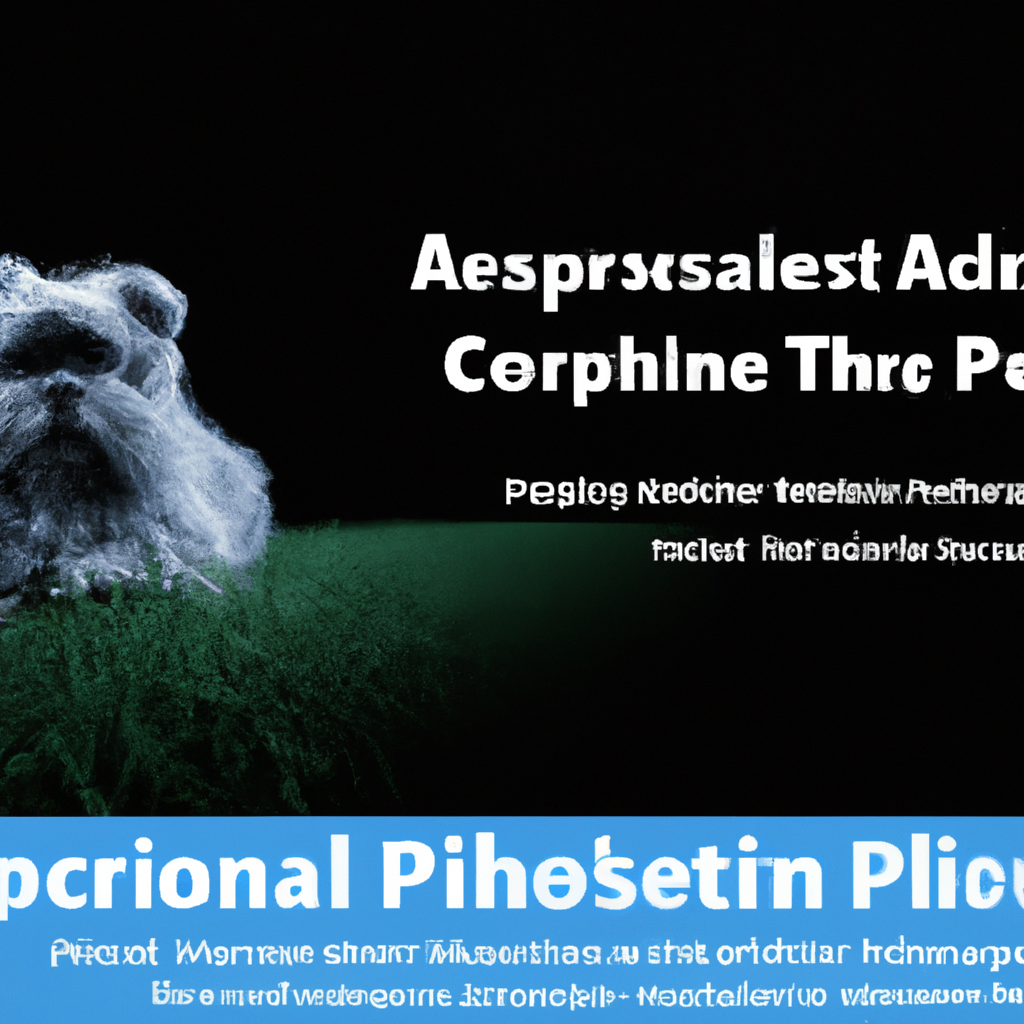The following article provides an in-depth review of common health concerns associated with the Affenpinscher breed. This small, terrier-like breed is generally healthy, but like all breeds, they can be prone to certain health conditions. From respiratory disorders to hip dysplasia, we will explore the various health issues that may affect Affenpinschers, their symptoms, prevention methods, and treatment options. This comprehensive guide aims to equip Affenpinscher owners and enthusiasts with essential knowledge to ensure the well-being of these unique dogs.
Understanding the Common Health Concerns of Affenpinschers
Affenpinschers, affectionately known as “Monkey Dogs,” are a small but sturdy breed known for their distinctive, scruffy appearance and playful, energetic personalities. While these little dogs are generally healthy, they are not immune to certain health concerns. As a responsible pet owner, it’s essential to understand these potential issues to ensure your Affenpinscher lives a long, happy, and healthy life.
One of the most common health concerns for Affenpinschers is hip dysplasia, a genetic condition where the hip joint doesn’t fit together correctly, leading to discomfort, pain, and potentially arthritis. While this condition is more common in larger breeds, Affenpinschers are not exempt. Regular vet check-ups can help identify this issue early, and treatments can range from medication to surgery, depending on the severity.
Another health concern that often affects Affenpinschers is a condition known as patellar luxation. This is when the kneecap dislocates or moves out of its normal position, causing pain and difficulty walking. It’s a common issue in small dogs and can be managed with physical therapy, weight management, and in severe cases, surgery.
Affenpinschers are also prone to certain eye conditions, including cataracts and progressive retinal atrophy (PRA). Cataracts can cause cloudiness in the eye lens, leading to impaired vision, while PRA is a degenerative eye disorder that can eventually lead to blindness. Regular eye exams can help catch these conditions early, and treatments can include medication or surgery.
Heart disease, particularly a condition known as patent ductus arteriosus (PDA), is another concern for Affenpinschers. PDA is a congenital heart defect where a blood vessel that should close shortly after birth remains open, causing blood to flow in the wrong direction. Symptoms can include lethargy, difficulty breathing, and a decreased appetite. If left untreated, PDA can lead to heart failure, so it’s crucial to have regular vet check-ups to catch this condition early.
Lastly, Affenpinschers can be prone to certain skin conditions, including allergies and sebaceous adenitis, an inflammatory skin disease. Allergies can cause itching, redness, and discomfort, while sebaceous adenitis can lead to hair loss and scaly skin. Regular grooming can help keep your Affenpinscher’s skin healthy, and any skin issues should be addressed by a vet.
While this list of health concerns might seem daunting, it’s important to remember that not all Affenpinschers will experience these issues. Many live long, healthy lives with minimal health problems. The key is regular vet check-ups and a proactive approach to your pet’s health. Early detection and treatment can make a significant difference in managing these conditions.
In conclusion, while Affenpinschers are generally a healthy breed, they are prone to certain health concerns, including hip dysplasia, patellar luxation, eye conditions, heart disease, and skin conditions. Regular vet visits, a healthy diet, and plenty of exercises can go a long way in ensuring your Affenpinscher lives a long, healthy, and happy life. After all, these little dogs have big personalities and deserve the best care we can give them.
A Comprehensive Review of Affenpinschers Health Issues
Affenpinschers, affectionately known as “Monkey Dogs,” are a small but sturdy breed known for their distinctive appearance and playful personalities. However, like all breeds, they are prone to certain health issues. This article aims to provide a comprehensive review of common Affenpinschers health concerns, helping owners to better understand and care for their furry friends.
Firstly, let’s talk about the most common issue: dental problems. Affenpinschers have a small mouth, which often leads to overcrowding of teeth. This can result in a variety of dental issues, including gum disease and tooth decay. Regular brushing and professional dental cleanings can help prevent these problems, but it’s also important to keep an eye out for signs of dental distress, such as bad breath, difficulty eating, or excessive drooling.
Moving on, Affenpinschers are also prone to certain eye conditions. One of these is cataracts, a condition that causes the lens of the eye to become cloudy, impairing vision. Another common eye issue is glaucoma, a condition characterized by increased pressure within the eye that can lead to blindness if left untreated. Regular vet check-ups can help catch these conditions early, and treatments can range from eye drops to surgery, depending on the severity of the condition.
Next on the list is hip dysplasia, a genetic condition that affects the hip joint. This can cause pain, difficulty walking, and in severe cases, arthritis. While this condition is more common in larger breeds, Affenpinschers can also be affected. Regular exercise and a healthy diet can help manage this condition, but in some cases, surgery may be necessary.
Heart disease is another concern for Affenpinschers. This breed is prone to a condition called Patent Ductus Arteriosus (PDA), a congenital heart defect that can lead to heart failure if left untreated. Symptoms can include fatigue, difficulty breathing, and a decreased appetite. Treatment typically involves surgery, and the prognosis is generally good if the condition is caught early.
Lastly, let’s discuss allergies. Affenpinschers, like many breeds, can suffer from a variety of allergies, ranging from food allergies to environmental allergies such as pollen or dust mites. Symptoms can include itching, redness, and gastrointestinal issues. If you notice your Affenpinscher showing signs of an allergic reaction, it’s important to consult with a vet to determine the cause and appropriate treatment.
In conclusion, while Affenpinschers are generally a healthy breed, they are prone to certain health issues. Regular vet check-ups, a balanced diet, and plenty of exercises can go a long way in keeping your Affenpinscher healthy. However, it’s also important to be aware of these common health concerns so that you can spot any potential problems early and seek appropriate treatment. Remember, a healthy Affenpinscher is a happy Affenpinscher!
Exploring the Health Challenges of Affenpinschers
Affenpinschers, affectionately known as “Monkey Dogs,” are a small but sturdy breed known for their distinctive appearance and playful, energetic personalities. However, like all breeds, Affenpinschers are prone to certain health conditions. In this article, we’ll delve into some of the most common health concerns that can affect these charming little dogs.
Firstly, let’s talk about the Affenpinscher’s eyes. This breed is predisposed to a variety of eye conditions, including cataracts, glaucoma, and progressive retinal atrophy (PRA). Cataracts can cause cloudiness in the eye lens, leading to impaired vision or even blindness. Glaucoma, on the other hand, is a more serious condition that results from increased pressure within the eye, causing pain and potentially leading to blindness if not treated promptly. PRA is a genetic disease that causes the retina’s cells to deteriorate over time, leading to gradual vision loss. Regular vet check-ups are crucial to catch these conditions early and manage them effectively.
Next, let’s discuss the Affenpinscher’s skeletal health. Patellar luxation, or slipping kneecaps, is a common issue in small dog breeds, including Affenpinschers. This condition can cause discomfort, limping, or an abnormal gait. In severe cases, surgery may be required to correct the issue. Hip dysplasia, a condition where the hip joint doesn’t fit together properly, is another potential concern. While less common in small breeds, it can still occur and lead to arthritis or mobility issues later in life.
Heart disease is another area of concern for Affenpinschers. Specifically, they are prone to a condition called mitral valve disease, which affects the heart’s ability to pump blood efficiently. Symptoms can include coughing, fatigue, and difficulty breathing. Regular heart screenings can help detect this condition early and allow for management through medication and lifestyle changes.
Affenpinschers are also prone to certain skin conditions. Allergies can cause itching, redness, and discomfort, and may require dietary changes or medication to manage. Additionally, these dogs have a dense, rough coat that can be prone to matting and skin infections if not properly groomed.
Lastly, like many small breeds, Affenpinschers can struggle with dental health. Their small mouths can lead to overcrowding of teeth, making them more prone to dental disease. Regular teeth cleanings, both at home and professionally, can help keep their mouths healthy.
Despite these potential health concerns, it’s important to remember that not all Affenpinschers will get any or all of these illnesses. Regular vet check-ups, a balanced diet, regular exercise, and good dental hygiene can go a long way in keeping your Affenpinscher healthy. Additionally, if you’re considering getting an Affenpinscher from a breeder, ensure they use genetic testing to minimize the risk of inherited conditions.
In conclusion, while Affenpinschers are prone to certain health conditions, many of these can be managed or even prevented with proper care and regular veterinary check-ups. These delightful dogs are known for their longevity, and with the right care, they can lead happy, healthy lives. After all, every breed has its health challenges, and being aware of them is the first step in ensuring your furry friend stays as healthy as possible.
A Detailed Look at Affenpinschers and Their Health Concerns

Affenpinschers, affectionately known as “Monkey Dogs,” are a small but sturdy breed known for their distinctive appearance and playful, energetic personalities. However, like all breeds, Affenpinschers are prone to certain health concerns that potential owners should be aware of. This article will provide a detailed review of the most common health issues that can affect Affenpinschers, helping you to ensure your furry friend stays as healthy and happy as possible.
One of the most common health concerns for Affenpinschers is hip dysplasia, a condition where the hip joint doesn’t fit together properly, leading to discomfort and mobility issues. This condition is often genetic, so it’s essential to ensure that any Affenpinscher you’re considering adopting has been screened for hip dysplasia. Regular exercise and a healthy diet can also help to manage this condition and keep your Affenpinscher’s joints healthy.
Another common health issue for Affenpinschers is a condition known as patellar luxation, or slipping kneecaps. This condition can cause lameness and discomfort, and in severe cases, may require surgery to correct. Like hip dysplasia, patellar luxation is often genetic, so it’s crucial to ensure that your Affenpinscher’s parents have been screened for this condition.
Affenpinschers are also prone to certain eye conditions, including cataracts and progressive retinal atrophy (PRA). Cataracts can cause cloudiness in the eye and can lead to blindness if left untreated, while PRA is a degenerative eye disorder that also leads to blindness. Regular vet check-ups can help to catch these conditions early and manage them effectively.
Heart disease is another concern for Affenpinschers, particularly a condition known as mitral valve disease. This condition causes the heart’s mitral valve to deteriorate, leading to heart failure if left untreated. Regular vet check-ups and a healthy diet can help to manage this condition and keep your Affenpinscher’s heart healthy.
Finally, like many small breeds, Affenpinschers are prone to dental issues. Their small mouths can lead to overcrowding of teeth, making them more susceptible to dental disease. Regular brushing and professional dental cleanings can help to keep your Affenpinscher’s teeth healthy and prevent dental disease.
While this list of health concerns may seem daunting, it’s important to remember that not all Affenpinschers will develop these conditions. Many live long, healthy lives with the right care and attention. Regular vet check-ups, a healthy diet, and plenty of exercises can go a long way towards keeping your Affenpinscher healthy.
Moreover, if you’re considering adopting an Affenpinscher, it’s crucial to choose a reputable breeder who screens their dogs for these common health issues. A good breeder will be able to provide you with health clearances for both of the puppy’s parents, giving you peace of mind that your new furry friend has the best possible start in life.
In conclusion, while Affenpinschers are prone to certain health concerns, these can often be managed effectively with the right care and attention. By being aware of these potential issues and taking steps to prevent them, you can help to ensure that your Affenpinscher lives a long, healthy, and happy life.
Unveiling the Common Health Risks in Affenpinschers
Affenpinschers, affectionately known as “Monkey Dogs,” are a small but sturdy breed known for their distinctive appearance and playful, energetic personalities. However, like all breeds, Affenpinschers are prone to certain health conditions. As a responsible pet owner, it’s essential to be aware of these potential health risks to ensure your furry friend lives a long, happy, and healthy life.
One of the most common health concerns in Affenpinschers is hip dysplasia, a genetic condition that affects the hip joint. This condition can lead to discomfort, pain, and even lameness in severe cases. Regular vet check-ups can help detect early signs of hip dysplasia, and treatments can range from medication to surgery, depending on the severity.
Another health concern that Affenpinschers are predisposed to is a condition known as patellar luxation. This is when the kneecap dislocates or moves out of its normal position, causing pain and difficulty walking. It’s a common issue in small dog breeds and can be managed with physical therapy, weight management, and in some cases, surgery.
Affenpinschers are also prone to certain eye conditions, including cataracts and progressive retinal atrophy (PRA). Cataracts can cause cloudiness in the eye lens, leading to impaired vision, while PRA is a degenerative eye disorder that can eventually lead to blindness. Regular eye exams can help detect these conditions early, and treatments can include medication, surgery, or in the case of PRA, lifestyle adjustments to help the dog adapt to decreasing vision.
Heart disease, particularly a condition known as patent ductus arteriosus (PDA), is another health risk in Affenpinschers. PDA is a congenital heart defect that can lead to heart failure if left untreated. Symptoms can include lethargy, difficulty breathing, and a decreased appetite. Treatment typically involves surgery, and the prognosis is generally good if the condition is detected and treated early.
Lastly, Affenpinschers can be prone to a condition known as brachycephalic syndrome due to their short noses and flat faces. This syndrome can lead to breathing difficulties and other respiratory problems. Management typically involves avoiding excessive heat and strenuous exercise, and in severe cases, surgery may be required.
While this list of health concerns may seem daunting, it’s important to remember that not all Affenpinschers will develop these conditions. Regular vet check-ups, a balanced diet, and plenty of exercises can go a long way in keeping your Affenpinscher healthy. Additionally, if you’re considering getting an Affenpinscher from a breeder, ensure they screen for these conditions to reduce the risk of your puppy inheriting them.
In conclusion, while Affenpinschers are a generally healthy breed, they are prone to certain health conditions. Being aware of these potential health risks and taking preventative measures can help ensure your Affenpinscher lives a long, healthy, and happy life. After all, our furry friends rely on us to take care of them, and being informed is the first step in doing so.
Affenpinschers Health Concerns: A Comprehensive Guide
Affenpinschers, affectionately known as “Monkey Dogs,” are a small but sturdy breed known for their distinctive appearance and playful personalities. However, like all breeds, they are prone to certain health conditions. This article aims to provide a comprehensive guide to some of the most common health concerns that can affect Affenpinschers.
Firstly, let’s talk about the heart. Affenpinschers are susceptible to a condition known as Patent Ductus Arteriosus (PDA). This is a congenital heart defect that can lead to heart failure if left untreated. It’s caused by a blood vessel near the heart that fails to close after birth, leading to an abnormal flow of blood between the aorta and pulmonary artery. Symptoms can include lethargy, difficulty breathing, and a decreased ability to exercise. Fortunately, PDA can be corrected with surgery, and most dogs lead a normal life post-operation.
Next on the list is hip dysplasia, a common skeletal condition in many dog breeds. In Affenpinschers, it’s often hereditary. Hip dysplasia occurs when the hip joint doesn’t form correctly, leading to a gradual deterioration and potential loss of function of the joint itself. Symptoms can range from mild discomfort to severe pain and can lead to a decreased range of motion. While it can be managed with medication and lifestyle changes, severe cases may require surgery.
Another health concern to be aware of is Legg-Calve-Perthes Disease. This condition affects the hip joint, where the head of the femur bone degenerates, leading to inflammation, pain, and lameness. It typically occurs in young dogs and can be treated with surgery and physical therapy.
Affenpinschers are also prone to certain eye conditions. One of these is Progressive Retinal Atrophy (PRA), a group of degenerative diseases that affect the retina. This can lead to night blindness and eventually total blindness. There’s currently no cure for PRA, but dogs can usually adapt well to their limited or lost vision, as long as their surroundings remain the same.
Another eye-related issue is cataracts, which can cause cloudiness and vision loss. While cataracts are often associated with aging, they can also be hereditary or caused by diseases like diabetes. Treatment usually involves surgery to remove the cloudy lens.
Lastly, let’s touch on a condition called Brachycephalic Syndrome. This is a group of upper airway abnormalities often seen in breeds with short noses, like the Affenpinscher. Symptoms can include difficulty breathing, snoring, and intolerance to exercise. Treatment can range from lifestyle changes to surgery, depending on the severity of the condition.
In conclusion, while Affenpinschers are generally healthy dogs, they are prone to certain health conditions. Regular vet check-ups, a balanced diet, and plenty of exercises can go a long way in keeping your Affenpinscher healthy. If you notice any changes in your dog’s behavior or health, it’s always best to consult with a vet. Remember, early detection is key in managing these health concerns effectively.
The Reality of Health Concerns in Affenpinschers
Affenpinschers, affectionately known as “Monkey Dogs,” are a small but sturdy breed known for their distinctive, scruffy appearance and playful, energetic personalities. However, like all breeds, Affenpinschers are not immune to certain health concerns. As a potential or current Affenpinscher owner, it’s essential to be aware of these potential health issues to ensure your furry friend lives a long, healthy, and happy life.
One of the most common health concerns in Affenpinschers is hip dysplasia, a genetic condition where the hip joint doesn’t fit together correctly, leading to discomfort, pain, and potentially arthritis. While this condition is more common in larger breeds, Affenpinschers are not exempt. Regular vet check-ups and maintaining a healthy weight can help manage this condition and keep your Affenpinscher comfortable.
Another health concern that Affenpinschers may face is a condition known as patellar luxation. This is when the kneecap dislocates or moves out of its normal position, causing pain and difficulty walking. It’s a common issue in small dog breeds, and while it can be managed with medication and physical therapy, severe cases may require surgery.
Affenpinschers are also prone to certain eye conditions, such as cataracts and progressive retinal atrophy (PRA). Cataracts can cause cloudiness in the eye lens, leading to impaired vision, while PRA is a degenerative eye disorder that can eventually lead to blindness. Regular eye exams can help catch these conditions early, and treatments can slow their progression.
Heart disease, specifically a condition called patent ductus arteriosus (PDA), is another health concern in Affenpinschers. PDA is a congenital heart defect where a blood vessel that should close shortly after birth remains open, causing some of the blood that should be flowing to the body to instead flow into the lungs. Symptoms can include fatigue, difficulty breathing, and a decreased ability to exercise. If left untreated, PDA can lead to heart failure.
Lastly, Affenpinschers can be prone to certain skin conditions, such as allergies and sebaceous adenitis, an inflammatory skin disease. Allergies can cause itching, redness, and discomfort, while sebaceous adenitis can lead to hair loss and scaly skin. Regular grooming and vet check-ups can help manage these skin conditions and keep your Affenpinscher’s coat looking its best.
While this list of health concerns may seem daunting, it’s important to remember that not all Affenpinschers will experience these issues. Many live long, healthy lives with minimal health problems. The key is to be aware of these potential concerns and to work closely with your vet to monitor your Affenpinscher’s health. Regular vet visits, a balanced diet, plenty of exercises, and lots of love can go a long way in ensuring your Affenpinscher lives a happy and healthy life. After all, as any Affenpinscher owner will tell you, these little dogs with their big personalities are well worth the effort.
A Closer Look at the Health Concerns of Affenpinschers
Affenpinschers, affectionately known as “Monkey Dogs,” are a small but sturdy breed known for their distinctive appearance and playful, energetic personalities. However, like all breeds, Affenpinschers are prone to certain health concerns that potential owners should be aware of. This article will provide a detailed review of the most common health issues that can affect Affenpinschers.
Firstly, let’s talk about the Affenpinscher’s eyes. This breed is susceptible to a variety of eye conditions, including cataracts, glaucoma, and progressive retinal atrophy (PRA). Cataracts can cause cloudiness in the eye lens, leading to impaired vision or even blindness. Glaucoma, on the other hand, is a condition where increased pressure in the eye can cause pain and eventually lead to blindness. PRA is a group of genetic diseases that cause the retina to deteriorate over time, leading to loss of vision. Regular vet check-ups can help detect these conditions early and manage them effectively.
Next, let’s move on to the heart. Affenpinschers, like many small dog breeds, are prone to heart conditions such as patent ductus arteriosus (PDA) and mitral valve disease. PDA is a congenital heart defect where a blood vessel that normally closes shortly after birth remains open, causing some blood to flow in the wrong direction. Mitral valve disease, on the other hand, is a condition where the heart’s mitral valve doesn’t function properly, leading to heart failure over time. Regular heart screenings can help detect these conditions early and provide appropriate treatment.
Another common health concern in Affenpinschers is hip dysplasia. This is a genetic condition where the hip joint doesn’t fit together properly, leading to pain and mobility issues. While it’s more common in larger breeds, small dogs like Affenpinschers can also be affected. Regular exercise and a healthy diet can help manage this condition, but in severe cases, surgery may be required.
Affenpinschers are also prone to certain skin conditions, including allergies and sebaceous adenitis. Allergies can cause itching, redness, and discomfort, and can be triggered by a variety of factors, including certain foods, environmental allergens, or fleas. Sebaceous adenitis is a rare skin condition where the sebaceous glands in the skin become inflamed, leading to hair loss and skin infections. Regular grooming and vet check-ups can help manage these skin conditions and keep your Affenpinscher looking and feeling their best.
Lastly, let’s touch on dental health. Affenpinschers, like many small breeds, are prone to dental issues such as periodontal disease. This is a condition where plaque and tartar build-up leads to gum inflammation and tooth loss. Regular dental cleanings and a diet that promotes dental health can help prevent this condition.
In conclusion, while Affenpinschers are generally a healthy breed, they are prone to certain health concerns that potential owners should be aware of. Regular vet check-ups, a healthy diet, and plenty of exercise can go a long way in keeping your Affenpinscher healthy and happy. Remember, early detection and management of these conditions can greatly improve your dog’s quality of life.After a detailed review, it is concluded that common health concerns for Affenpinschers include heart defects, hip dysplasia, eye problems, respiratory issues, and dental problems. Regular check-ups and preventative care can help manage these conditions and ensure the overall well-being of the Affenpinscher.





